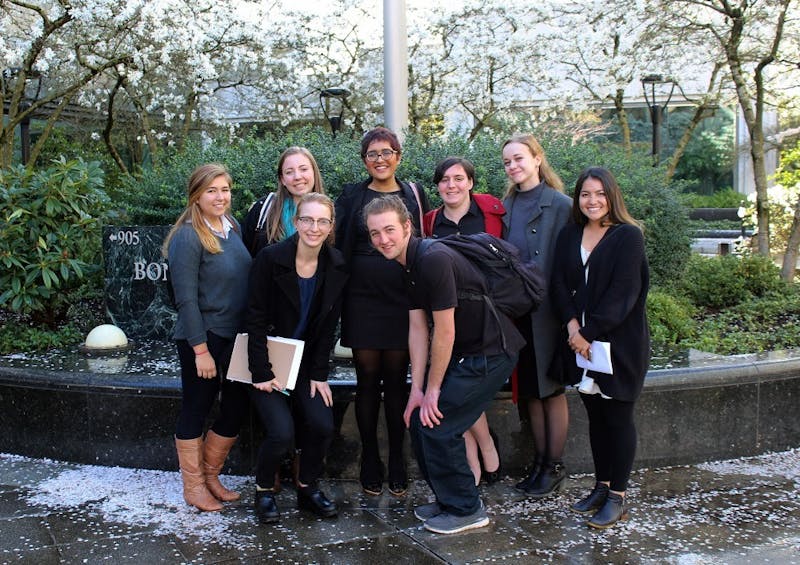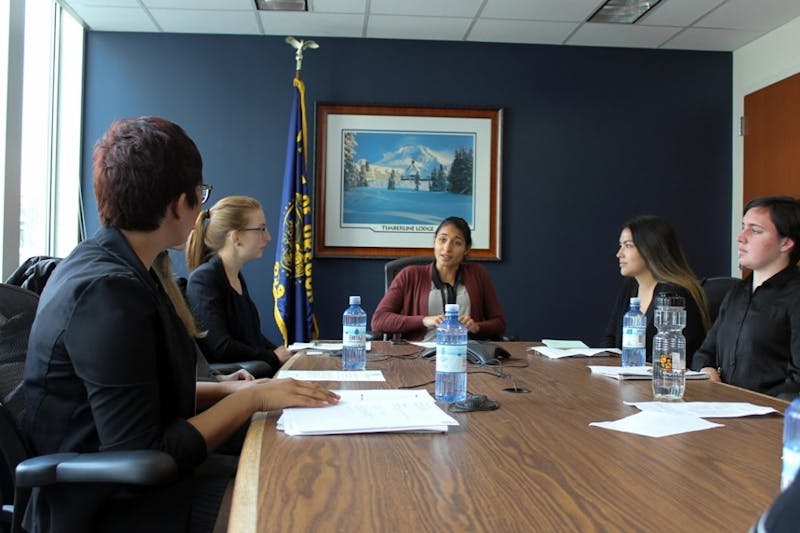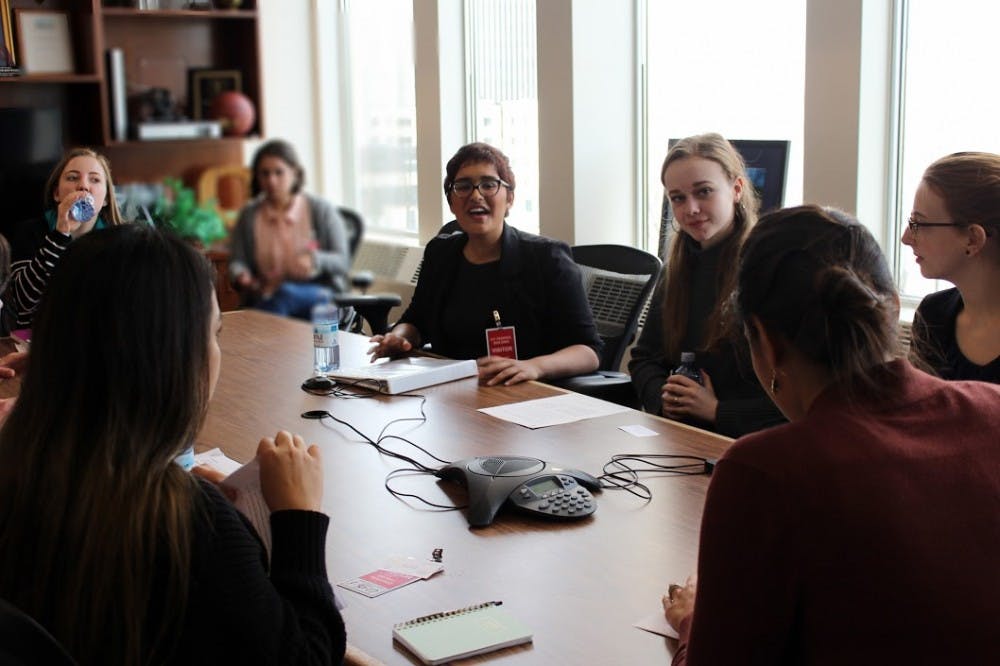Just before 2:30 on Thursday afternoon, eight students gathered in the Pilot House, waiting for a fleet of Radio Cabs to arrive. Sophomore Sitara Nath had scheduled a 3 p.m. appointment at Senator Ron Wyden’s (D-OR) office.
Nath opened a binder and passed out paper clipped flyers to each student who stood in the circle - for many, it would be their first time getting directly involved in the political process.
They would be lobbying for a bill that, if passed, would protect members of the Deferred Action for Childhood Arrivals (DACA) program from deportation. Their visit was preceded by a string of arrests by Immigration and Customs Enforcement officers in the Pacific Northwest last weekend, including the arrest of a DACA recipient in Portland.
While students did not actually get an audience with Senator Wyden, they met with one of his representatives, Grace Stratton, about the bill. It is being called the “Bridge Act,” which stands for “Bar Removal of Individuals Who Dream to Grow our Economy”.
Nath, who interns with the Friends Committee on National Legislation, explained the Bridge Act as: “a bill that will protect young, undocumented immigrants who grew up in the United States — otherwise known as ‘Dreamers’ — from deportation and detention if their protected status is revoked.” They would receive temporary relief from deportation so long as they are eligible for, or have received, work authorization.
The conversation focused largely on the stories and experiences of the students. The students, all of different backgrounds, took turns sharing their reasons for lobbying, speaking about their specific interests, and asking questions about what is happening locally to protect the rights of undocumented immigrants.

Juniors Reis Haitsuka, Jacob Tressel and Amy Swenson cited their experiences on the Moreau Center’s Border Immersion earlier in the school year as a significant reason for their passion for the bill. Haitsuka said she was shocked by the “gross neglect of migrants” she experienced while working on the Mexican-American border in Tuscon, Ariz. last year.
Tressel said going on the Border Immersion opened his eyes to the fact that this is “less of a political issue, and more of a human rights issue.” He said he’s upset by the number of immigrants who die in an attempt to reach the United States.
“If these were U.S. citizens,” he asked, “what would the rhetoric be around that?”
Freshman Alexandra Newsom explained that she is passionate about reforming immigration policy because of the many immigrants she knew growing up in California. She reflected specifically on her friendship with her high school calculus tutor, who emigrated from Cambodia.
“They are just human beings looking for a better life,” she said.
Katie Buchanan first became interested in the subject during annual summer visits to the Door of Faith Orphanage in La Misión, Baja, Mexico. The center serves children whose parents were attempting to cross the border and could not bring them along.
“It was incredibly heart breaking,” Buchanan, a freshman business administration major, said of meeting the children who had been left behind while their parents sought stability for their families in America. Because of these experiences, she is particularly interested in reuniting families that are broken apart by migration.
Cassidy Christopher, a junior social work and Spanish double major, spoke candidly about her experiences as an intern at SOAR (Sponsors Organized to Assist Refugees) in Portland. She explained that although she understands the differences between immigrants and refugees, in general, she sees similarities between the two groups.
She spent the first day of that internship with a gay Iraqi man who had been trying to get into the U.S. for eight years after facing persecution due to his identity. It was a powerful experience, but it was bittersweet— the first day of her internship was Jan. 20, the day of President Trump’s inauguration.
Christopher said she believes refugees and immigrants are only seeking to contribute and immerse themselves into American society.

Victoria Beccar Varela, a freshman organizational communication major, told the group that she immigrated from Argentina to the U.S. when she was just four years old.
“There is no one set model for what an immigrant is,” she said. “(Immigration) is a quintessential American value.”
After listening to the stories or her peers, Nath reiterated that it’s those kinds of experiences that inspire her to keep up her work on immigration policy.
Nath is the first generation daughter immigrants from India, and identifies as a “proud American”. Despite this, she says, “people make assumptions based on the color of my skin about my immigrant status and the quality of my character.”
“We are - and very proudly profess that we are - a nation of immigrants,” Nath said. “We want to thank our leaders and remind them that this is a priority for our generation.
All of the students agreed that they feel this is not an issue that the community can afford to normalize.
Stratton remained engaged with the students’ stories, taking notes and asking questions throughout the meeting.
At the end of the meeting, she reminded them to continue being diligent in asking questions. Stratton reiterated the importance of telling stories and listening to those of others.
“There are people in the shadows, and we need to let them know we’re here,” Stratton said. “We are going to do everything we can to keep moving forward. We are not going to take a back seat to protecting Oregon’s rights.”
Nath encouraged other UP students who are interested in lobbying in the future to contact her, get involved with the Moreau Center, sign up for the Border Immersion or talk to their dorm’s service and justice coordinator.








